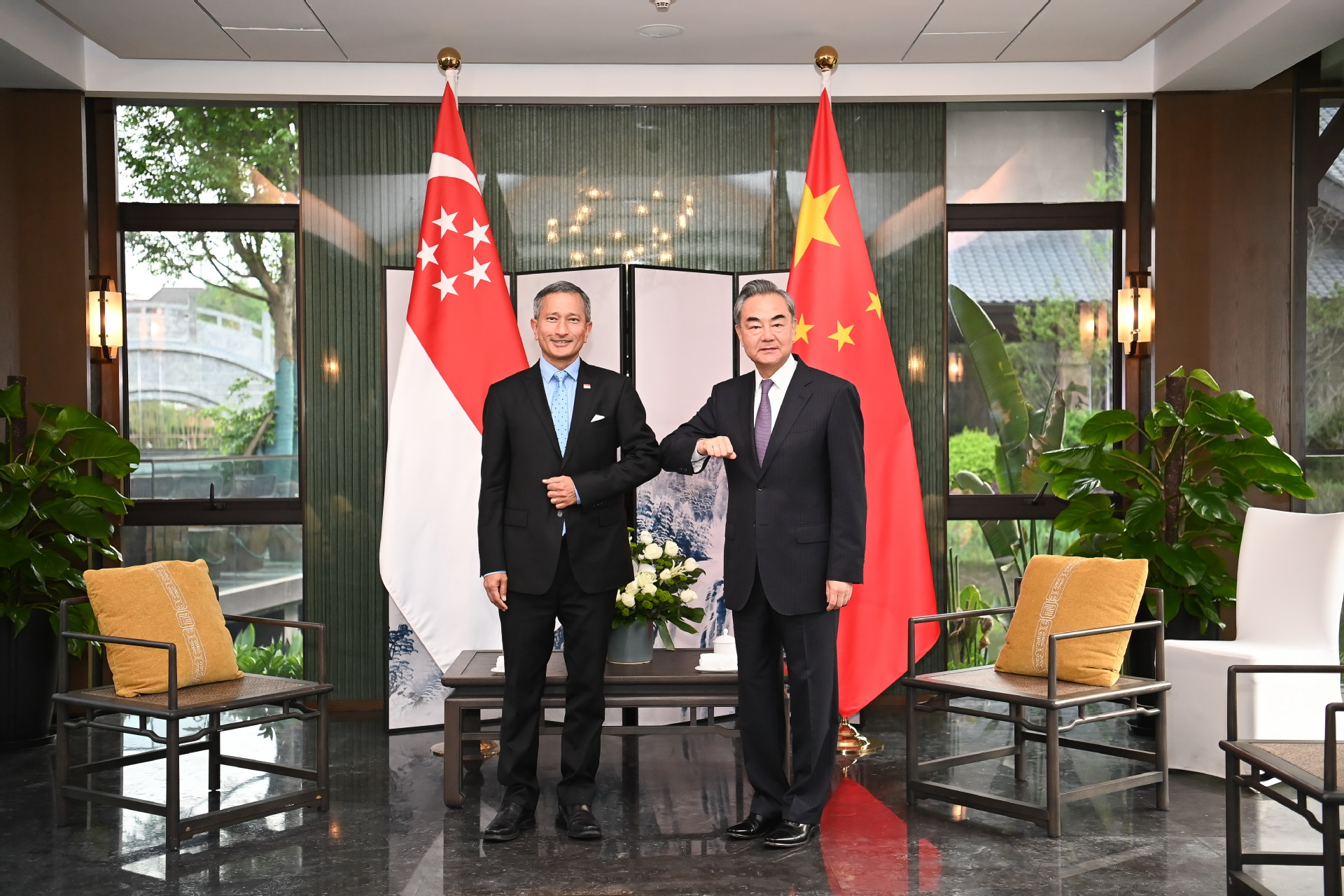Washington's swagger lacks past conviction: China Daily editorial
chinadaily.com.cn | Updated: 2021-04-05 18:48

One day after State Councilor and Foreign Minister Wang Yi's four-day meeting with his counterparts from five members of the Association of Southeast Asian Nations in Beijing, the Theodore Roosevelt Carrier Strike Group of the US Navy entered the South China Sea on Sunday, the third time this year.
If US National Security Advisor Jake Sullivan's "We will always stand by our allies" telephone call with his Philippine counterpart on Wednesday, and the series of meetings last week between the Japanese and Indonesian foreign and defense ministers in which they voiced their shared concerns about China trying to "change the status quo by force" are taken into account, the situation in the South China Sea looks to be heating up.
Yet the presence of the US Navy carrier group shows which country is trying to change the status quo using military muscle. The United States is sending the wrong signal to countries in the region that are at a crucial stage in the negotiations with China on the Code of Conduct for the South China Sea that has been gestating since 2002. It is because of the attempts by the US and its tag-along allies to sow discord in the region that the document remains a work in progress.
Ironically, despite the US' frequent interventions and attempts to sabotage regional cooperation, there has been a boom in regional trade and connectivity. The reason why the US, as a non-regional country, is increasingly flexing its muscles in the region is that, like any bully, it is trying to persuade others it is the one able to throw its weight around.
ASEAN became China's largest trade partner last year, and China has been ASEAN's for years. China and the ASEAN countries not only have strong economic, trade and development complementarity but also share time-honored values and long-established cultural and social relations. The two sides' close cooperation in COVID-19 pandemic prevention and control has further consolidated their partnership and mutual trust. If the US tries to undercut the foundation of their development, the ASEAN members have enough reasons to question the nature of their relations with the US.
Although protecting the international order comes at heavy cost to itself, China will not flinch, as what it stands for is not only its own interests but also those of the developing and less-developed countries.
If the Joe Biden administration is intent on inheriting its predecessor's baton to turn the South China Sea from a sea of friendship and cooperation into a wrestling ring at the cost of the interests of all countries in the region, it will find it is standing on the wrong side of history, and it will have a price to pay for its choice.























